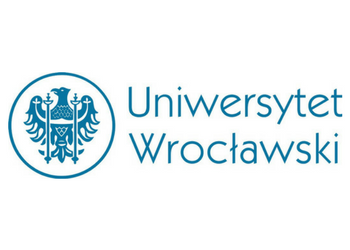Are you considering taking out a student loan? Want to learn more about what options exist? For many students, loans help finance their studies and allow them to earn well-paying jobs, which they then use to pay back the loans. In this EDUopinions article, we will discuss how student loans work and what the process to get one is like.
What is a student loan?

A student loan is a sum of money given to a person by the government or a bank so that they can pursue a higher education qualification. This sum of money must be paid back in a certain amount of time and with an added amount of interest. However, student loans typically have favourable interest rates, meaning the cost of taking out a loan for your studies will not be overly burdensome. In many countries, you will not have to start repaying your loan until you reach a certain amount of income. This guarantees that you can have access to funds to pursue higher education, but will not be penalised if you do not immediately find a high-paying job.
Do I need a student loan?
Whether you need a student loan or not depends on your own personal finances as well as the options available in your country of origin and the country where you study. Before you begin your university students, it is a good idea to create a budget to understand exactly how much money you may need to spend. Once you have made a budget, you may realise a student loan is necessary to help you cover all your costs. If this is the case, it is best to see what options exist in your country of origin and in the country where you intend to study.
How can I get a student loan?
The process to secure a student loan can vary greatly from country to country. In general, checking what sort of student loan schemes are offered by your government can be a good first step. In Europe and North America, governments offer loans at favourable interest rates to students, so seeing what public loan options exist in your country is definitely a good idea. If a loan from the government does not work out, banks are another lending organisation and also can offer favourable rates for students. For advice on student finance, check out this EDUopinions article for everything you need to know.
What do student loans cover?
Students can receive various types of loans to cover specific expenses related to their education. Commonly, loans are granted to cover tuition fees, which are oftentimes the most costly aspect of higher education. In addition, students can receive maintenance loans, which help cover the living costs of student life. As well, many student loans are non-specific in what they will cover, meaning that they can be used to pay for most costs related to your higher education. For more information on what student loans cover, read this EDUopinions article!
How do student loans differ across Europe?
As mentioned above, student loan schemes can vary widely from country to country. For this reason, we will briefly discuss how three European countries offer financial support to students.
United Kingdom

The UK offers students two different types of loans to help cover the cost of their studies. First, tuition fee loans will provide up to £9,250 per year in order to pay the cost of attendance at most universities. Second, maintenance loans will help cover living expenses while at university. The amount of money you receive as a maintenance loan depends on your family’s household income. For both these schemes, students are required to pay back the loan but only once they earn a certain amount of income, making them relatively safe options for financing their higher education.
Germany

One of the most popular student financing options in Germany is the Bafög, which aims to equalise access to higher education. The Bafög is a needs-based financing option for students, with a number of special rules to guarantee that your studies do not break the bank. For instance, 50% of the financial support provided by Bafög is interest-free. The other half is granted money, meaning it does not have to be paid back. But even if you receive a loan (rather than a grant), the maximum amount you can be expected to pay back is €10,000 during the course of your studies. In this light, Germany offers highly attractive student loan options and is also home to countless world-class educational institutions.
France

As public universities in France are tuition-free, student loans are less popular than in countries like the UK or US. That said, French banks do offer favourable loan schemes to students with low-interest rates often subsidised by the French government. In addition, students benefit from a number of social benefits programmes, subsidising the cost of housing, food and entertainment and transport.
Conclusions
Hopefully, this article has given you a better idea of how student loans work. The biggest takeaway is that student loans work different in every country, so the best way to find what financing option is right for you is to investigate locally. If you need help with anything related to student budgeting, financing and loans, feel free to reach out to EDUopinions for free, personalised advice!
Check out these related articles on when to apply for student finance and what is the cost of studying in major European countries.
Recent Posts

Although it's possible to sail through university without giving a thought to what you're going to do afterwards - concentrating only on enjoying ...

Ever thought about studying in Greece? Between the sunny weather, incredible history, and breathtaking coastline, you could also get a top business ...

Norway: it's a land of awe-inspiring nature, adrenaline-inducing outdoor sports, and picturesque cities. But have you ever thought about studying ...

